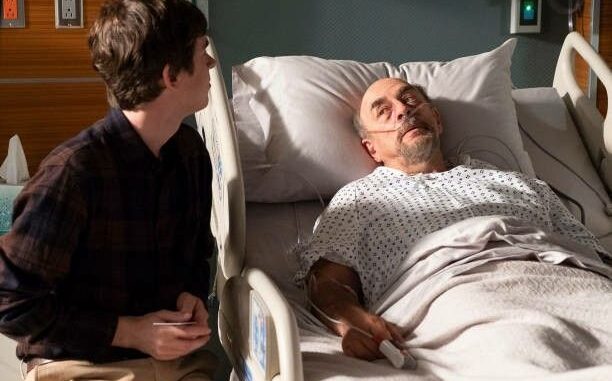
When a beloved medical drama like The Good Doctor comes to an end after seven emotionally charged seasons, fans expect a finale that delivers closure, catharsis, and a tribute to the journey they’ve taken with the characters. The series finale, aptly titled “Goodbye,” had all the potential to be a tearjerker, a celebration, and a reckoning rolled into one. Instead, what unfolded was a surprisingly subdued conclusion—one that prioritized simplicity over substance, and comfort over complexity.
At the center of the finale was Dr. Shaun Murphy’s TED talk—a symbolic moment meant to encapsulate everything he’s been through. This speech was the show’s way of summarizing Shaun’s arc from a socially awkward, underestimated surgical resident to a confident and competent attending. It could have been deeply emotional, filled with raw honesty and reflection. But in execution, it felt overly polished, too clean, and almost disconnected from the gritty, nuanced experiences that made Shaun’s journey so powerful in earlier seasons.
Other fan-favorite characters—like Dr. Claire Browne, Dr. Park, Dr. Andrews, and even Lea—were brushed aside with vague nods to “future possibilities” instead of concrete resolutions. The finale hinted at new paths, relocations, and professional developments, but all of it felt like afterthoughts. There was little effort to craft individual goodbye moments or give these characters the sendoff they deserved. The ensemble cast had always been a key ingredient in The Good Doctor’s success, and sidelining their arcs in the final hour came across as a missed opportunity to honor their journeys.
Perhaps most glaring was the lack of any significant medical case to anchor the episode emotionally or thematically. Past finales often revolved around high-stakes surgeries or difficult ethical dilemmas that forced characters to confront their fears, beliefs, or growth. In “Goodbye,” the absence of a central case made the episode feel unmoored. There were no life-or-death stakes, no patient to serve as a mirror for the characters’ internal battles, and no real test of Shaun’s growth as a surgeon or leader.

In fact, the finale felt strangely low on drama altogether. For a show that wasn’t afraid to break hearts—whether through tragic deaths, intense operating room moments, or personal revelations—this last episode played it remarkably safe. Some fans may have appreciated the calm, optimistic tone, but many were left craving the emotional intensity that had made the show so compelling from the beginning.
Another missed opportunity was the lack of deeper engagement with The Good Doctor’s core themes—particularly acceptance, neurodiversity, and inclusion in medicine. Over the years, the show broke ground by portraying an autistic protagonist in a high-stakes professional setting. It didn’t always get it right, but it sparked necessary conversations about capability, empathy, and bias. The finale had a chance to bring those themes full circle—perhaps by showing how Shaun is mentoring others like him, changing the system from within, or confronting lingering bias in a real, impactful way. But “Goodbye” opted for sentiment over substance, choosing to celebrate Shaun’s success without critically engaging with the systemic challenges he faced to get there.
In hindsight, “Goodbye” didn’t feel like a celebration—it felt like a summary. A neat conclusion where the edges were smoothed over, the conflicts set aside, and the character arcs gently ushered off-screen. And while some viewers may have appreciated the warmth and simplicity of this approach, others saw it as a betrayal of everything the show had built up to. The Good Doctor was never just about Shaun—it was about how he affected everyone around him, and how they, in turn, shaped him.
To end the series with such an insular focus on Shaun, while leaving others as narrative afterthoughts, undercut the sense of community that defined the show. The final images didn’t evoke tears or gasps—they merely closed the book. And for a show that often soared on the strength of its ensemble and its ability to make viewers feel deeply, that kind of soft landing felt like a disservice.
